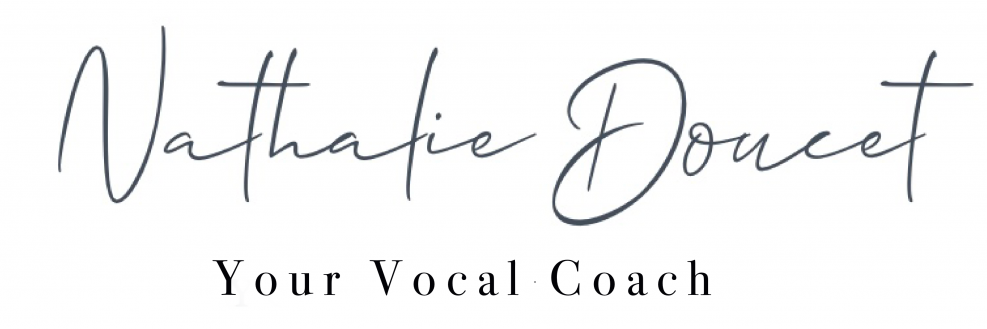What is a Semi-Consonant?
When you speak (or in our case sing) in French, there are 36 sounds to master:
- 15 vowel-sounds
- 18 consonant-sounds
- 3 semi-consonant sounds (also sometimes called semi-vowels or glides)
In today’s post, we will focus on the semi-consonant-sound.
The Semi-Consonants
Semi-consonant [ɥ]
Model word: nuit [nɥi] (night)
The corresponding sound for the [ɥ] is the phonetic [y] as in the word “lyne” in French
The Yod [j]
Model word: Dieu [djø] (God)
The corresponding sound for the [j] is the phonetic [i] as in the word “midi”. We often refer to this one specifically as a Yod. Think of saying the word “you” in English, that first glide is our [j].
Semi-consonant [w]
Model word soir [swar] (evening)
The corresponding sound for the [w] is the phonetic [u] as in the word “tout”. Think of saying the word “we” in English, the first glide is our [w].
All of the French semi-consonants have these three things in common:
1. They are always before the vowel-sound of the syllable.
In French syllabification, each syllable can only have one vowel-sound per syllable, some vowel combinations make a vowel sound
Example:
- aimer (to love) has two syllables ai/mer. The first “ai” makes one vowel sound and the last “er” make one vowel sound and they are seperated by the “m”
- In the word “nuit” (night), there are two vowel sound and no consonant seperating them, also, there is not combination of “ui” which makes one vowel-sound, so there is no syllabification. The semi-consonant is created: [nɥi]
2. They are introductory closures that open into or glide into the more open vowel sound, which in turn occupies the duration of the note-value.
You should never sing or elongate the semi-consonant, the glide should be made swiftly as you always aim for the vowel following the glide. If we look at the IPA for “nuit” [nɥi] the most important vowel to sing is the [i] which comes after the glide.
3. They never, in themselves, constitute a syllable. When they become vowel-sounds (and/or when they are assigned a note) they lose their qualities as semi-consonants, each being transformed into a particular vowel-sound.
Because we never elongate the semi-consonant, it cannot be a vowel-sound UNLESS they are assigned a note in the text:

In the example above, the first “curieux” has two notes, and clearly, you would have to use the glide to get to the [ø]. In the second example, the [j] loses its glide quality and becomes a vowel thanks to the composer who gave it a note value.
Be careful not to add a glide when it is not supposed to be there!
In the spoken French language, when a word ends in a vowel + mute “e” (a.k.a schwa), we do not pronounce the schwa.
For example “joie” (joy) is spoken without the last “e” [ʒwa], but many French composers gave a note value to the schwa, so that when you sing the word “joie” you would have to sing this otherwise mute “e” [ʒwaə].
Setting the mute “e” as accurately and elegantly as possible was always a goal for the French composers:
- Setting the mute “e” on the weaker beat
- Setting the mute “e'” on a lower pitch
- Giving the mute “e” a shorter note value than the preceding syllable
- Sometimes suggesting that we drop the mute “e” by setting it on a note tied to the preceding syllable.
- The music determines whether or not we sing the mute “e”
So when you sing the aria “Que fais-tu, blanche tourterelle” from Roméo et Juliette by Gounod, you will see the following:


Looking at these two excerpts from the aria, you notice a note value given to the schwas in the words “proie” and “joie”. The danger here is the temptation to insert a [j] between teh [wa] and the [ə].
The correct way to sing this is as follows:
Laisse-là ces oiseaux de proie, Tourterelle qui fais ta joie
[lɛsəˈla sɛz‿waˈzo də ˈproiə turtəˈrɛlə ki fɛ ta ˈʒwaə]
And not
[lɛsəˈla sɛz‿waˈzo də ˈprwajə turtəˈrɛlə ki fɛ ta ˈʒwajə]
Believe it or not, I hear the addition of a Yod quite often, and sometimes from established singers. It is probably not because they mean to do it; gliding cleanly between these vowels takes a lot of practice. Not to mention that if you glide between the vowel and the schwa, you will create a stress on the mute “e” which is not allowed…You have all seen the meme:

Adding a glide between these vowels, creates confusion because it does not sound like the right word, and it is a dead give-away that you are not French. The transition between these vowels must be seemless. Happy gliding!




You must be logged in to post a comment.